david f. prindle





to my friends mark lockhart and william alex rennie, for decades of good conversation about science, politics, and life.
contents
acknowledgments 9
introduction 11
chapter one: a charming style 15
chapter two: philosophy of science 45
chapter three: the contours of history 81
chapter four: the politics of human nature 117
chapter five: science and human inequality 149
chapter six: science and religion 177
chapter seven: a new theory? 207
glossary 219
bibliography 225
index 241
acknowledgments
 s with any academic book, all of the chapters of this one went through many drafts and revisions. Sometimes I added, sometimes I subtracted, and sometimes I subtly modified. Occasionally I revised because of a new thought or a new reading, but just as often after a conversation with another scholar or a written critique from a reviewer. I cannot thank everyone by name who helped, because some were anonymous reviewers at academic presses. Those reviewers read the whole manuscript and gave me detailed critiques, and, if they chance upon this book in published form, I want them to know that I am grateful to them-even those who disliked my central thesis and therefore gave me a hard time. Hard times are useful.
s with any academic book, all of the chapters of this one went through many drafts and revisions. Sometimes I added, sometimes I subtracted, and sometimes I subtly modified. Occasionally I revised because of a new thought or a new reading, but just as often after a conversation with another scholar or a written critique from a reviewer. I cannot thank everyone by name who helped, because some were anonymous reviewers at academic presses. Those reviewers read the whole manuscript and gave me detailed critiques, and, if they chance upon this book in published form, I want them to know that I am grateful to them-even those who disliked my central thesis and therefore gave me a hard time. Hard times are useful.
But I can name some. Here are people who read all or part of individual chapters, and made various kinds of suggestions. I did not take all the suggestions, of course, but I considered each one at some length.
Chapter 1: Ellen Kogan, Jay Wilbur
Chapter 2: Richard Lewontin, Jay Wilbur
Chapter 3: Dan Bolnick, Niles Eldredge
Chapter 5: John Loehlin
Chapter 6: Thomas Gregg
Additionally, there is a group of people with whom I discussed many of the ideas contained herein. Some criticized, some suggested, but all helped. They are Roger Berkowitz, Walter Dean Burnham, Benjamin Gregg, Robert Hardgrave, Melvin Hinich, Donna Howell, Mark Lockhart, William Alex Rennie, and Robert Sprinkle.
I owe a particular debt to Professor Daniel Bolnick of the Section of Integrative Biology in the School of Biological Sciences at the University of Texas at Austin for permitting me to audit his graduate course on "Speciation" during the Spring 2006 semester. I guess, when I started, that I knew about as little about evolutionary biology as the average political scientist, so it took a good deal of forbearance by Dan and his graduate students to endure my habitual assertiveness in class. But they did endure it with good cheer, and I hope they all win Nobel prizes. The students were Mark Brinkman, Evan Economo, An Lee, Hernan Lopez-Fernandez, Jen Olori, Mary McGovern, Frank Stearns, and Roxi Steele.
introduction
 ne July day in 1969, while working my way through my undergraduate years as a rear chainman on a survey crew in Alaska, I inadvertently thrust my fist into a hornets' nest nestled within a patch of thick bushes. The next few minutes were among the most memorable of my life.
ne July day in 1969, while working my way through my undergraduate years as a rear chainman on a survey crew in Alaska, I inadvertently thrust my fist into a hornets' nest nestled within a patch of thick bushes. The next few minutes were among the most memorable of my life.
The years I have spent working on this book have been joyously entertaining, but they have also been memorable in a manner reminiscent of my experience in Alaska. Sometimes I have felt as if I had ignorantly stuck my hand into an academic hornets' nest.
I knew when I began the project that Stephen Jay Gould lived his professional life amidst scientific controversies, and that I would have to participate in those controversies in order to make sense of Gould's contribution to evolutionary biology. That knowledge did not intimidate me. Indeed, the existence of the controversies was partly what drew me to Gould and his ideas. I also knew that scholars can be aggressively territorial in their suspicion of people not trained in their specialties who presume to write books about them. I anticipated a good deal of skepticism from paleontologists, ethologists, and those in related fields concerning my qualifications, and I tried to forestall the accusation of poaching by reading professional literature, attending professional classes, participating in professional conventions, interviewing professional luminaries, and approaching professional controversies with as much humility as I could muster.
What I did not anticipate, however, was the hostility among some members of the fraternity of evolutionary biologists to my central thesis in this book, that Gould's mind worked along two tracks simultaneously, the scientific and the political. As an observer who is sensitive to political implication by temperament and training, it seemed glaringly obvious to me that Gould never penned a line that did not address, if only implicitly, both areas of human thought. It seemed too evident for contradiction that each of his essays on the history of life was also a meditation on larger political issues.
But my cavalier assumptions along these lines were mistaken, and called out the hornets. Evidently, many professional scientists perceive any effort to consider the political implications of scientific ideas to be an attack on the idea of scientific truth itself. To them, apparently, real science is simply an exercise in theorizing and considering evidence. Every attempt to consider the social implications or evaluate the personal interests or persuasive strategies of scientists is an effort to undermine the whole enterprise.
As a person who naturally thinks simultaneously in the political and scientific realms, I was caught up short when I encountered this attitude among natural scientists. When I first sent my manuscript around to academic presses (which shall remain unnamed), I was expecting specific criticisms and even general negativity from the internal reviewers-those are part of the scholarly life. But I was not prepared to read this sort of thing in a review:
Science is not decided by vote but by evidence. It is not up to Gould to convince anyone of anything; it is up to scientists to pursue the evidence that leads them to support or reject hypotheses that have been proposed to explain the pattern and processes of the evolution of life.... It is a question of the standards of evidence and the methods accepted by the field that are of importance; nothing more.... What does it matter that a few people argue about political implications? They may be full of shit.... I think that his [Prindle's] main thesis, that Gould's science and his politics were inseparable, is overstated and unsupportable in many instances.
My project, in other words, was a waste of time. Either there are no political implications in science, or there are but they are irrelevant.
That particular reviewer, however, did not speak for all of them. Just as prevalent among the early internal reviews was this sort of statement:

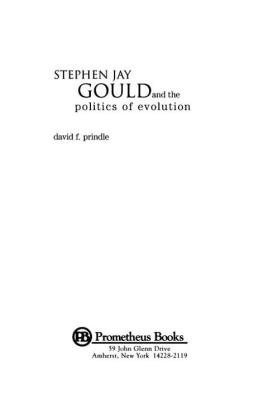
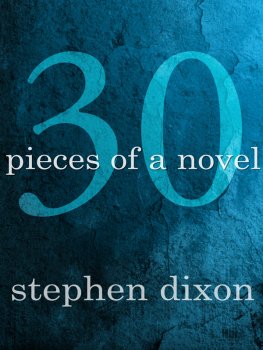
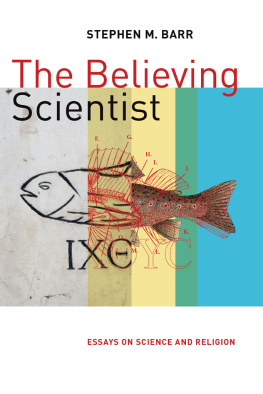

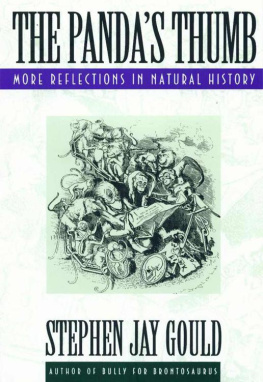
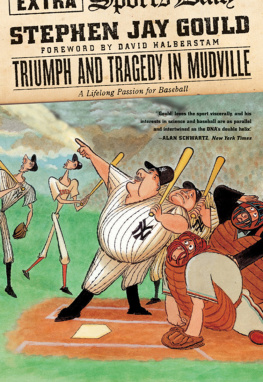

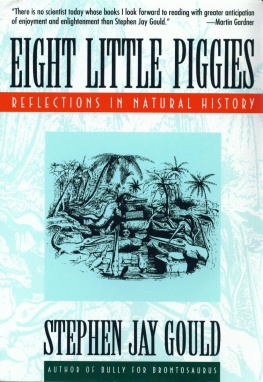
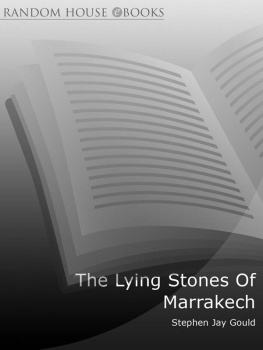
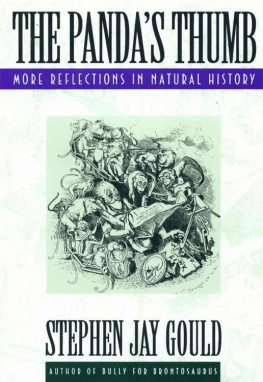






 s with any academic book, all of the chapters of this one went through many drafts and revisions. Sometimes I added, sometimes I subtracted, and sometimes I subtly modified. Occasionally I revised because of a new thought or a new reading, but just as often after a conversation with another scholar or a written critique from a reviewer. I cannot thank everyone by name who helped, because some were anonymous reviewers at academic presses. Those reviewers read the whole manuscript and gave me detailed critiques, and, if they chance upon this book in published form, I want them to know that I am grateful to them-even those who disliked my central thesis and therefore gave me a hard time. Hard times are useful.
s with any academic book, all of the chapters of this one went through many drafts and revisions. Sometimes I added, sometimes I subtracted, and sometimes I subtly modified. Occasionally I revised because of a new thought or a new reading, but just as often after a conversation with another scholar or a written critique from a reviewer. I cannot thank everyone by name who helped, because some were anonymous reviewers at academic presses. Those reviewers read the whole manuscript and gave me detailed critiques, and, if they chance upon this book in published form, I want them to know that I am grateful to them-even those who disliked my central thesis and therefore gave me a hard time. Hard times are useful. ne July day in 1969, while working my way through my undergraduate years as a rear chainman on a survey crew in Alaska, I inadvertently thrust my fist into a hornets' nest nestled within a patch of thick bushes. The next few minutes were among the most memorable of my life.
ne July day in 1969, while working my way through my undergraduate years as a rear chainman on a survey crew in Alaska, I inadvertently thrust my fist into a hornets' nest nestled within a patch of thick bushes. The next few minutes were among the most memorable of my life.